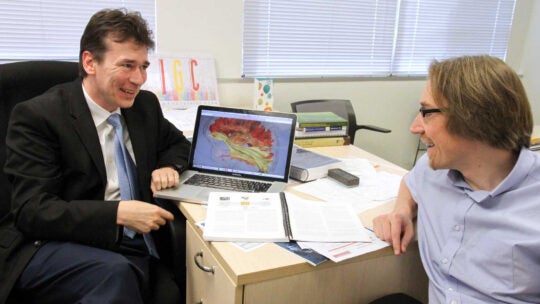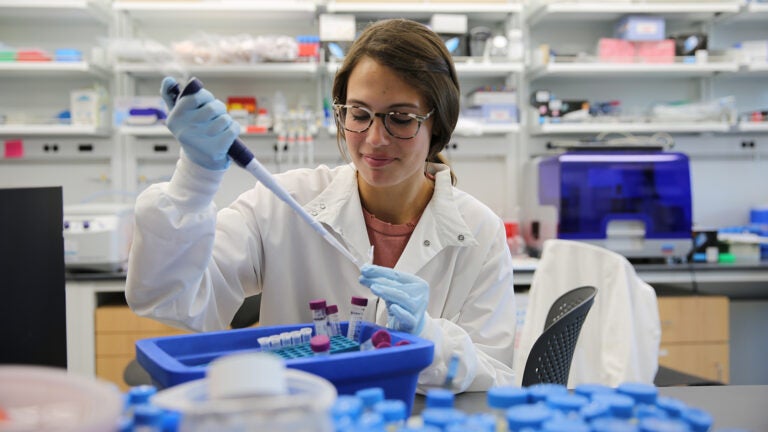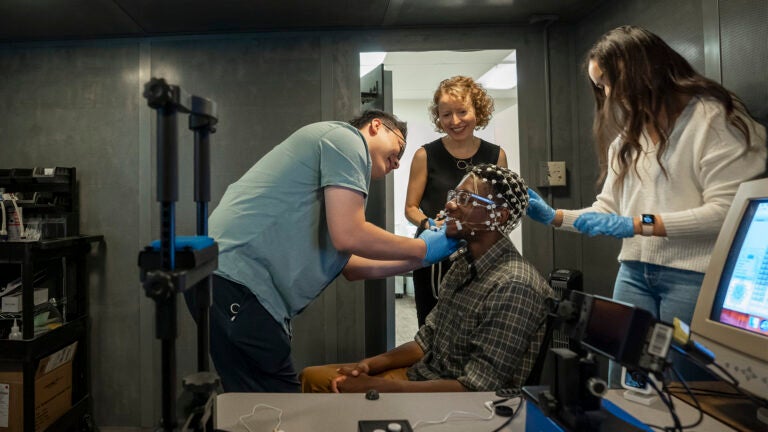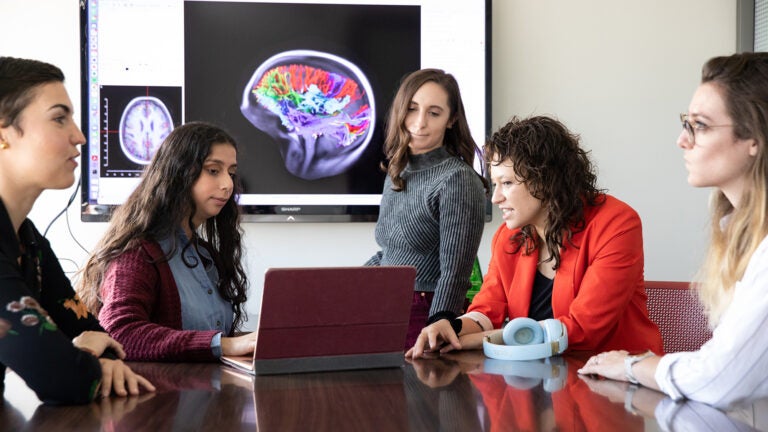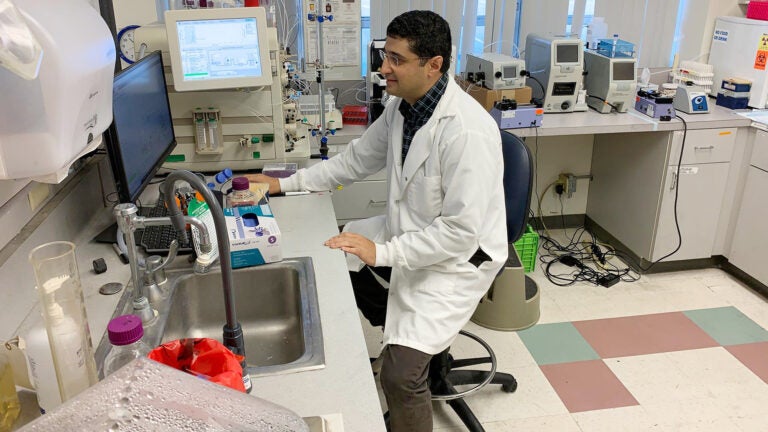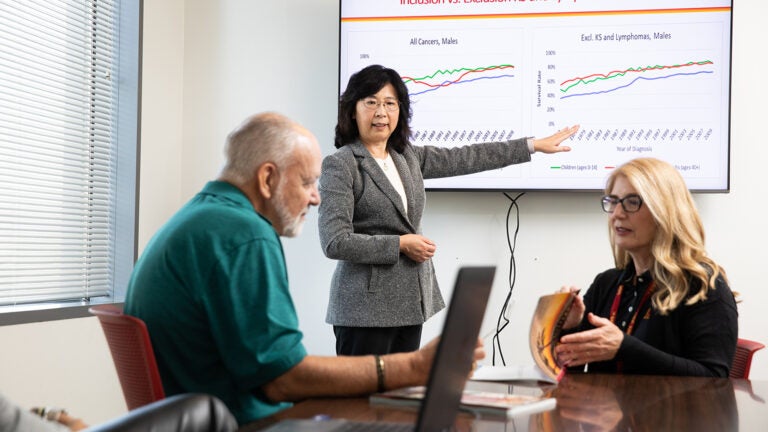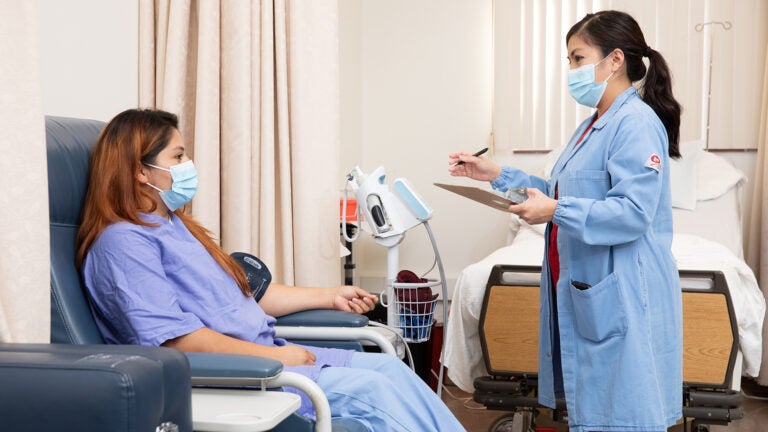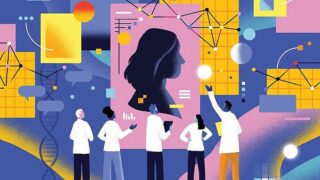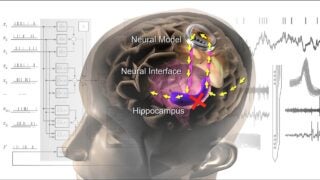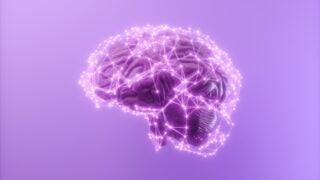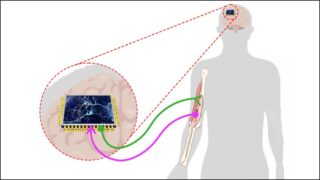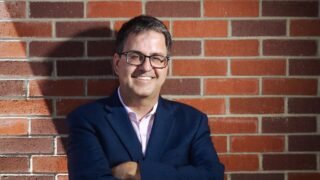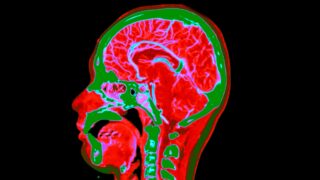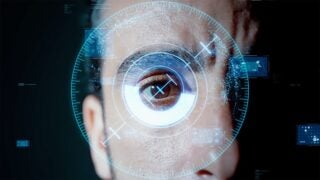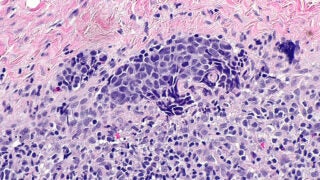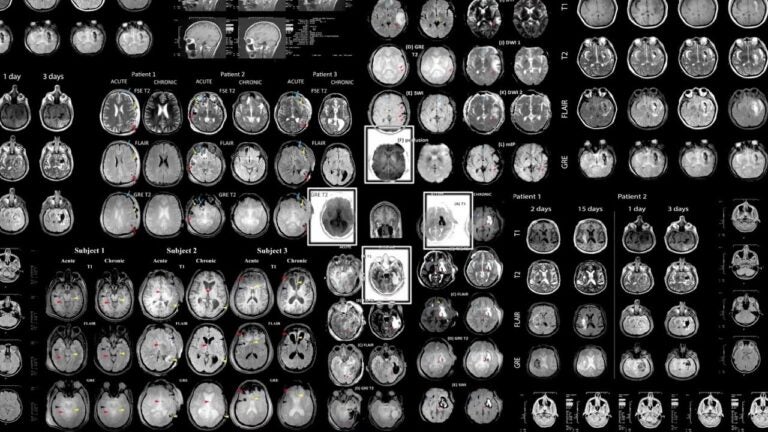We Are Advancing Health
USC is shattering conventions in health care research, treatment and delivery, creating more equitable systems, modeling world-class care for urban populations and finding cures for intractable diseases — all while training tomorrow’s health leaders.
USC is shattering conventions in health care research, treatment and its delivery, as well as training tomorrow's researchers and practitioners. The goal: to create a more equitable system, create models for the best care and delivery in urban populations globally, and achieve breakthoughs in cures for intractable diseases.
Health Equity and Data-Fueled Discovery
Precision medicine is core to a healthier future globally. But, historically, the data it relies on has been gathered in non-diverse settings, making precision medicine less precise overall. At USC, a commitment to health equity and to local communities means the data and experience the university gathers in one of the most diverse metropolitan regions advances precision medicine in important ways.
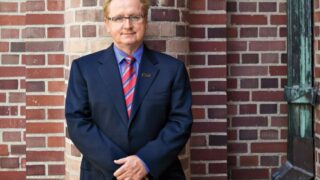
Collaborative and Interdisciplinary Approach
USC’s emphasis on interdisciplinary collaboration is at the core of the university’s approach to creating a healthier future for all, including solving puzzles at the root of disease. The university has aligned research, education and clinical treatments to maximize impact, bringing seven schools under USC’s Health Sciences practice so we can address health holistically — from medical, social and research vectors.
Working Together Nets Greater Results
Cross-discipline efforts bring fresh perspectives to some of our most vexing problems. USC is built around the intersections of knowledge and discovery, creating a culture of collaboration in the lab and the classroom.
Collaborating to turn memory loss into a distant memory
USC Viterbi and the Keck School of Medicine of USC are working on human trials for a revolutionary brain prosthesis to repair and restore lost memories.
Collaboration between USC engineers, doctors provides hope for patients with severe depression, mood disorders
USC Viterbi’s Maryam Shanechi works with researchers from the Keck School of Medicine of USC in the hopes of creating game-changing new therapies.
USC researchers receive funding to develop next generation of intelligent biocomputers
Researchers from USC and UC Irvine will explore how combining stem cell therapy with brain-computer interfaces could help restore function to patients with brain damage.
How USC researchers are using computer code to write the future of medicine
Remo Rohs discusses the work of USC Dornsife’s Department of Quantitative and Computational Biology.
USC research team uncovers the underpinnings of head and neck cancers
Published research from the Ostrow School of Dentistry of USC shows how an amino acid may hold the secrets of oral cancers.
How USC engineers are using ultrasound to restore vision
A USC Viterbi research team is using non-invasive technologies to target degenerative visual impairments.
Air pollution exposure during childhood linked directly to adult bronchitis symptoms
The Keck School of Medicine of USC study underscores the need to dramatically reduce air pollution.
Building a culture of collaboration to ignite discovery in medicine
Steve Kay, head of convergent research initiatives at the Keck School of Medicine of USC, spurs team science to change the landscape of health.
Facilitating Global Networks for Discovery
USC’s collaborative culture fuels knowledge sharing far beyond the university, with the goal of helping researchers worldwide build on one another’s work. The Global Alzheimer’s Association Interactive Network (GAAIN), created by USC’s Laboratory of Neuro Imaging (LONI) and funded by the Alzheimer’s Association, has developed the first integrated research platform that links scientists, shared data and sophisticated analysis tools in an effort to address Alzheimer’s through massive shared data sets.
Revolutionizing Health Care Through Technology and Innovation
Discover how USC is transforming the fields of health research and services to improve quality of life around the world. Our pioneering work leads the way in patient care, medical research and health care education.
Solving Real-World Problems with Virtual Reality
USC’s Institute for Creative Technologies is one real-world example of our commitment to using our multidisciplinary research to develop advanced prototypes and pilot projects that solve real-world problems. For United States Military Academy West Point cadet, Jareth Long-Garrett that means Bravemind, a program that uses virtual reality technology to help treat post-traumatic stress.
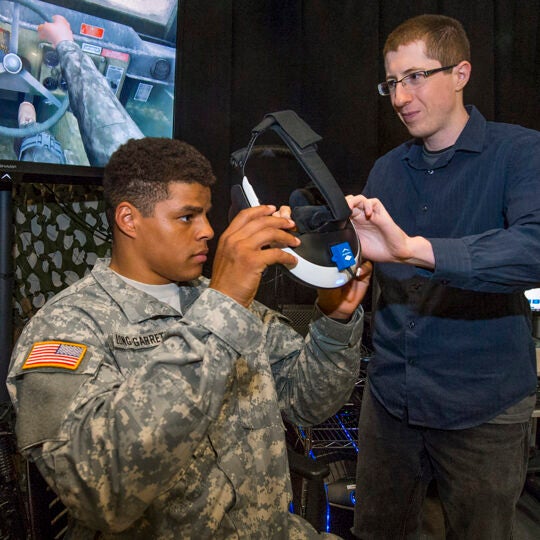
A Guide for Cancer Care
Peter Kuhn, director of the Convergent Science Institute in Cancer, has set out to create a roadmap on how to treat cancer. Kuhn’s research team in physics oncology has discovered new ways of how cancer spreads to the human body and they are now using that data to better understand how to create a game plan for patient care.
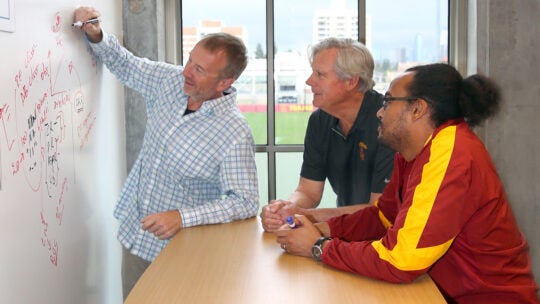
Nanotechnologies Can Solve Medical Needs
The Biomedical Microsystems Laboratory was established by Dr. Ellis Meng and focuses on developing novel micro- and nanotechnologies for biomedical applications. Her tireless work has led to significant advancements in addressing medical needs of the community and the world.
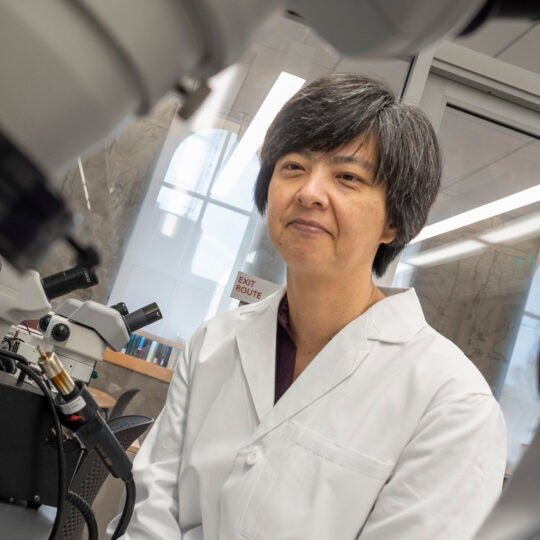
Artificial Intelligence and Rehabilitation
Francisco Valero-Cuevas holds a robotic hand he and his lab, Valero Lab, helped developed. The Valero Lab works to understand how human mobility works using robotics and artificial intelligence. This research translates into real technology, like the robotic hand, that improves people’s everyday lives.
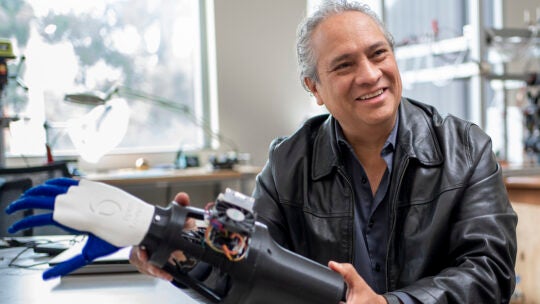
Connecting Medicine and Engineering
To develop safe and effective cures for human diseases, we need reliable models of human tissues to establish the underlying biology. Bridging medical research and engineering, The Laboratory for Living Systems Engineering works to engineer micro-scale mimics of native healthy and diseased human tissues that provide meaningful physiological outputs and are scalable for other applications.
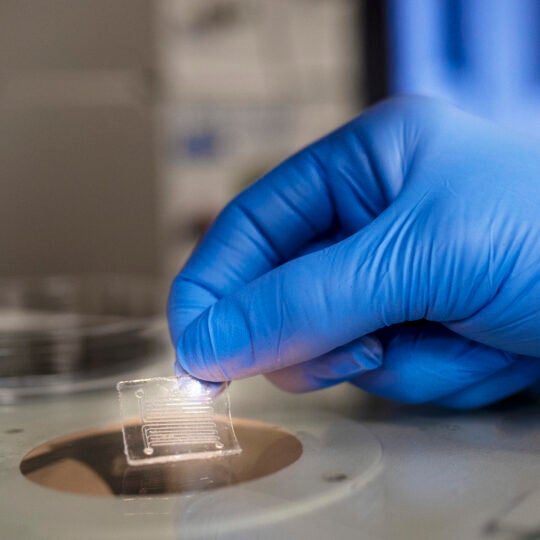
Early Detection in Alzheimer’s
The key to treating and managing many brain diseases is to catch them early, before symptoms even appear. For researchers like Paul Thompson at the USC Mark and Mary Stevens Neuroimaging and Informatics Institute, they believed they could discover hidden factors of diseases using machine learning technology. Calling in the help of USC computer science research assistant professor Greg Ver Steeg, researchers studied how using machine learning to identify potential blood-based markers of Alzheimer’s disease.
